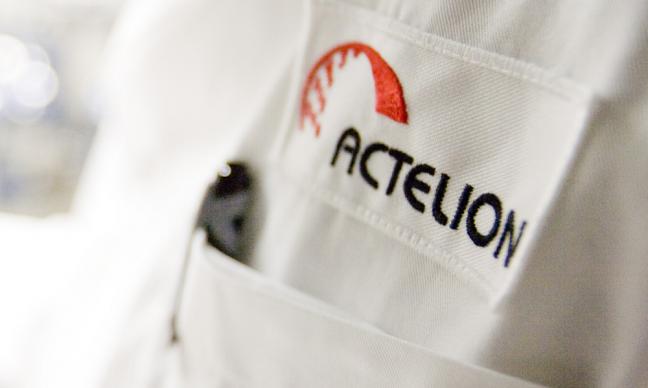Actelion Presents Phase III Clinical Data at ATS Conference

Representatives from Actelion Pharmaceuticals Ltd will be presenting data from its Phase III GRIPHON and SERAPHIN studies at the American Thoracic Society (ATS) Conference 2015, held in Denver, Colorado. GRIPHON focused on the investigational drug selexipag (Uptravi®), while SERAPHIN focused on macitentan (Opsumit®). Both were used for patients with pulmonary arterial hypertension.
The first presentation, given by Dr. Kelly Chin of the University of Texas Southwestern Medical Center in Dallas, Texas, will be May 17th and focuses on results for specific subpopulations of GRIPHON participants. Her talk, entitled “Selexipag Prolongs the Time to Morbidity/Mortality Events in Key Subgroup Populations: Results from GRIPHON, a Randomized Controlled Study in Pulmonary Arterial Hypertension,” identifies the efficacy of selexipag for pulmonary arterial hypertension patients when patient age, geographical region, and pulmonary arterial hypertension etiology are considered. Over 1,000 patients were enrolled in this study. It was found that patients overall benefited from treatment, and the results of each subpopulation mirrored the overall treatment effect. Morbidity and mortality were significantly lower for selexipag-treated patients than placebo-treated patients.
Following Dr. Chin a few days later, Dr. Marion Delcroix of the University of Leuven in Belgium will discuss the SERAPHIN study with a poster presentation entitled, “Prognostic Indicators of Long-Term Outcome in Pulmonary Arterial Hypertension: Results from the SERAPHIN Event-Driven Morbidity/Mortality Trial.” Again, indicators of morbidity and mortality were the primary outcomes for the clinical trial, but according the presentation, “SERAPHIN is the first event-driven, randomized controlled trial in patients with pulmonary arterial hypertension.” Nearly 750 patients were randomized to receive 3 mg daily of macitentan, 10 mg daily of macitentan, or a daily placebo.
Twenty-six baseline variables out of 46 studied were included within the researchers’ model for determining if patients were predicted to improve after macitentan treatment. High baseline values for mixed venous oxygen saturation (SvO2) and six-minute walk distance (6MWD) were predictive of a low risk for morbidity and mortality. High baseline values of creatinine, Borg dyspnea index, and use of diuretics predicted a high risk for morbidity and mortality events. This is the first time diuretic use has been associated with macitentan outcome, and the researchers will investigate this effect further.
These two Phase III clinical trials are advancing Actelion’s new pulmonary arterial hypertension therapies further. If macitentan and selexipag are approved to treat pulmonary arterial hypertension, the two drugs would be added to Actelion’s strong portfolio of treatments for pulmonary arterial hypertension.







